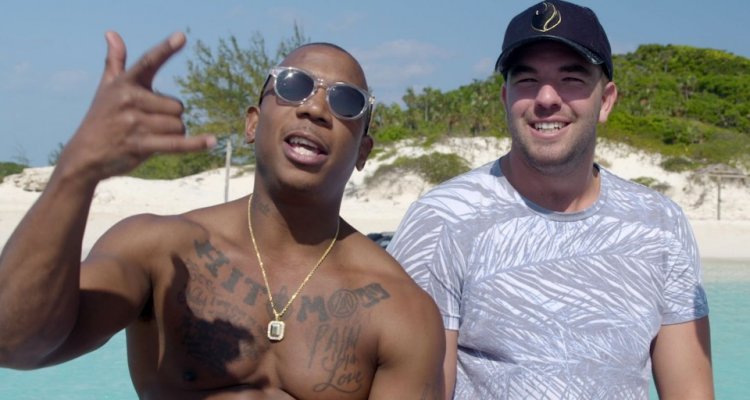Behind every great disaster is a fascinating story. And, as our society continues to amass more ways to document our every interaction with Instagram and other social media tools, these great stories become easier and easier to tell. “Fyre: The Greatest Party That Never Happened,” a new Netflix documentary about the infamous musical festival catastrophy in the Bahamas, is a perfect example of this new era in storytelling where even the most damning interactions are intentionally filmed — because if it didn’t get shared online, did it actually happen?
‘Fyre’ isn’t constructed around unraveling a mystery and it doesn’t pivot on any unforeseen twist. The film is built from the assumption that everyone knows how this shitshow ends. From the beginning, the calamity awaiting this doomed festival looms amid every interaction with and beneath every decision of Fyre’s notorious founder — Billy McFarland. This dread also haunts the faces and stories told by the principal characters who McFarland roped into his fantastical dream. ‘Fyre,’ then, is like watching a car crash in slow motion. There is no question of how awfully this thing will end for everyone involved, but it is hard not to be captivated by the devilishly charming ringmaster who continually tightens the rope around the neck of his own business. This includes hiring videographers to document his every move — whether it be on a tropical island paradise or in a New York penthouse while, quite literally, committing fraud.
In more ways than one, ‘Fyre’ is a movie about McFarland. A magnetic salesman, by his mid-twenties McFarland already weaseled his way into the upper echelon of New York City society and he was gearing up to take his life to the next level with his famous business partner — Ja Rule — and their slick new talent booking app. The only thing he needed was the perfect promotional marketing stunt to launch his app. Thus, the idea for the Fyre Festival was born. The event, which was scheduled to take place in April and May 2017, would — according to its ticket description and promotional materials — take place on a deserted island once owned by Pablo Escobar, feature artists like Blink 182 and Major Lazer, influencers like Kendall Jenner, Bella Hadid, and Emily Ratajkowski, and include private cabanas and luxury yachts for guests to stay in. Tickets, which sold out quickly, started at $500 and went well over $12,000.
‘Fyre’ is more or less the story of how McFarland managed to propel his grandiose vision — which should have never gotten off the ground — past one hurdle after another, each of which should have derailed the event. From the beginning, the festival was built upon selling a lifestyle to thousands of people that couldn’t simply be sold in bulk. To launch the marketing campaign, McFarland, Ja Rule and a cadre of famous influencers including Hadid and Ratajkowski, alighted to the island once owned by Escobar to stage and film the party of a lifetime. It was, ‘Fyre’ posits, the life that McFarland wanted — supermodels, yachts, private planes, tropical beaches — and thus a chance for him to have it, all in the name of marketing his festival and launching his app. That a festival of 10,000 people could never be so glamorous and intimate (let alone even fit on their chosen island, which they were quickly kicked off of), is a fantasy that few seemed to acknowledge, and those who did acknowledge it were quickly forced from the project.
Part of what makes ‘Fyre’ so compelling, aside of watching the fiery car crash in slow motion, is the cast of characters that Chris Smith (“Jim And Andy: The Great Beyond”) wrangled together to tell the story. Many are former Fyre employees or contractors that worked with McFarland on the festival, and while it’s easy to envision that, in an event that has been slapped with lawsuit after lawsuit, many could come off as attempting to tell their version of events, almost everyone accepts their culpability. Some have email evidence that they pushed back against McFarland’s bullheadedness and his penchant to bulldoze ever forward, but none could make themselves walk away, a fact they readily admit. What’s most fascinating, though, is their shared desire to look inward, to ask why they went along, knowing what they did, and to ask what it was about McFarland that made him capable of cajoling one inherently reasonable person after a next into complicity, to make them believe in a pipedream.
At its core, ‘Fyre’ is a simple movie. The story has been told over and again (both in the news and the Hulu movie “Fyre Fraud” which just sneakily dropped) and the entire fiasco was incredibly well documented, both by McFarland (who paid to have himself filmed committing fraud) and almost everyone else involved, but Netflix’s ‘Fyre’ does little to upend the narrative we already know. Instead, it settles to dig a little deeper and emphasize the plight of some of the Bahamian locals McFarland screwed out of hundreds of thousands of dollars, which has been mostly overlooked. The movie, then, is an unshowy telling of a great story of a fascinating disaster. But in being such a simple, unshowy film, it avoids asking too many questions or digging for the larger truths writ large in the story of Fyre about our society, about celebrity and influencers and Instagram, and the patently manufactured lives that we’re taught to believe we can have. [B]

